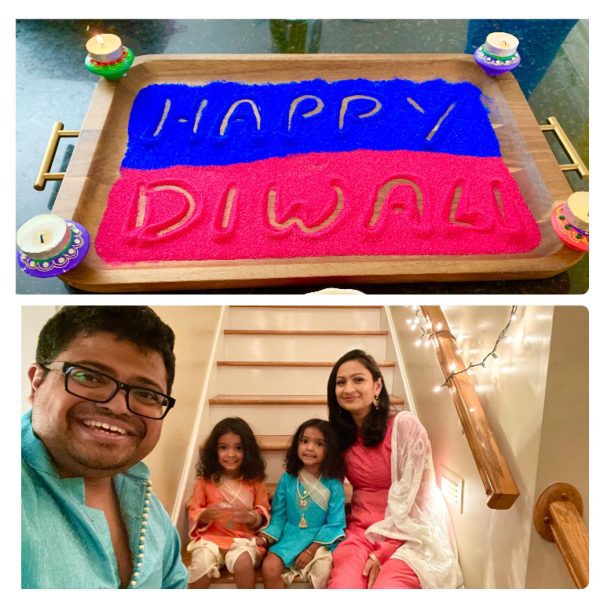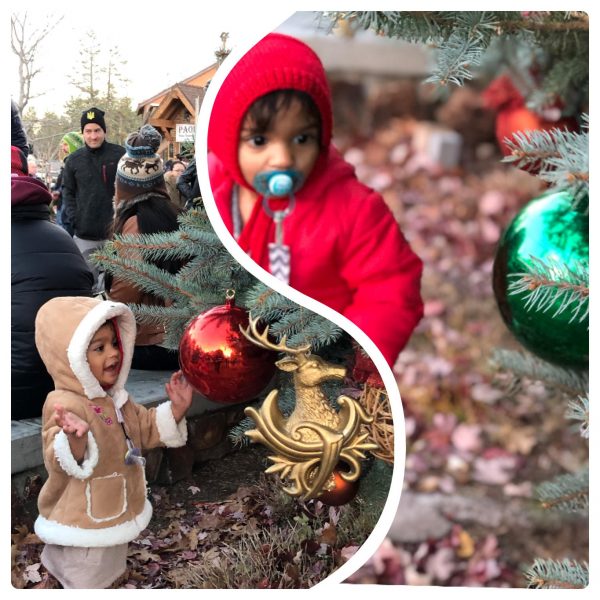The smell of incense sticks lingering in my house. My mom drawing a beautiful rangoli — “floor art” — at the entrance of our house, draped in her new sari gifted by my dad. Lantern and oil lamps adorning the streets on a full moon night. We are celebrating Diwali — the festival of lights, the triumph of good over evil. I cherish my childhood memories of those festivities.
It has been little bit over nine years since I have moved to the United States. And since then, Diwali has never been the “Diwali” from my childhood. Diwali is quite a small affair here, visiting the Hindu temple and having a get-together with friends.
This time of the season, I wish I was back home. But I am home — this has been my home for nine years. I got married here and my twin daughters were born here — this is their home, their normal. I could either ruminate on what I am missing or create beautiful memories for my daughters, with my daughters, which may be different yet will be the new normal that we celebrate.
My daughters with their tiny hands hold the strings of lights while my husband hangs them all around the house. They sit quietly in a corner wearing their ethnic dress sent by their grandparents, watching me light the clay oil lamp at the entrance of our house welcoming Goddess Lakshmi. They wait patiently at the kitchen while the Gulab jamun cools down. “You look like a beautiful mermaid when you wear a sari,” my daughter Teesta compliments me.

We use English at home; hence, I translate “Happy Diwali” in Hindi — “Diwali ki Shubhkamnayein” — for my kids and they hug and exclaim in enthusiasm. These moments make me nostalgic for my past and offer the opportunity to let my daughters experience some of what I experienced as a girl.
As their mother, born and raised in India, it is my responsibility to guide my daughters to absorb Indian culture and tradition despite knowing that they will never live in India and they will blend it with their American upbringing.
Christmas is celebrated weeks after Diwali. My daughters, Teesta and Torsha, are first-generation American, and I insist on celebrating the holiday season with similar enthusiasm – adorning the mantle with red and white stockings, baking cakes, and sending out holiday cards to friends and family, decorating our Christmas tree, and waking up with the excitement of unwrapping the gifts underneath the tree.

“Jingle bells” and “Let it Snow” play in a loop in the car as we drive to take pictures with Santa and then come home to a cup of hot chocolate with marshmallows. Although they are two mischievous, naughty girls, we hand them their “good girl” Christmas gifts from their wish list with a promise they will be good next year.
We do not have to be selective about which festival brings us more joy. These two seemingly different festivals, celebrated just weeks apart, give me a chance to teach an important lesson of tolerance, to spread joy and love, to embrace the custom and tradition of their Indian roots, and have similar vigor and vitality for Christmas.











